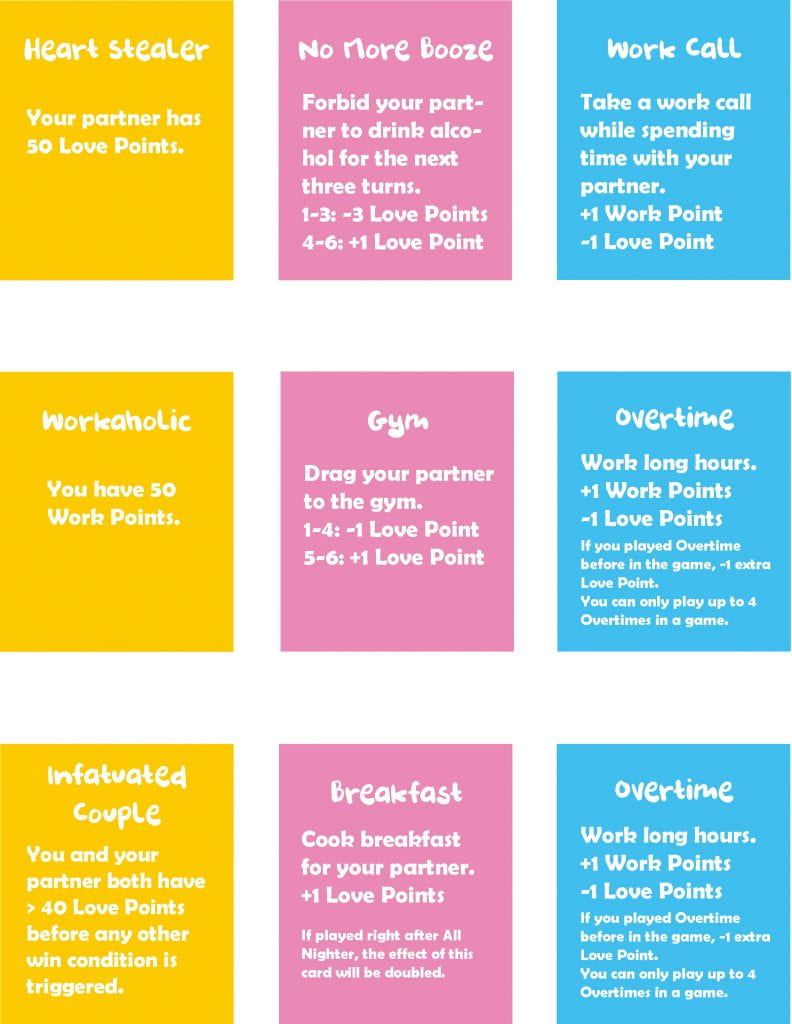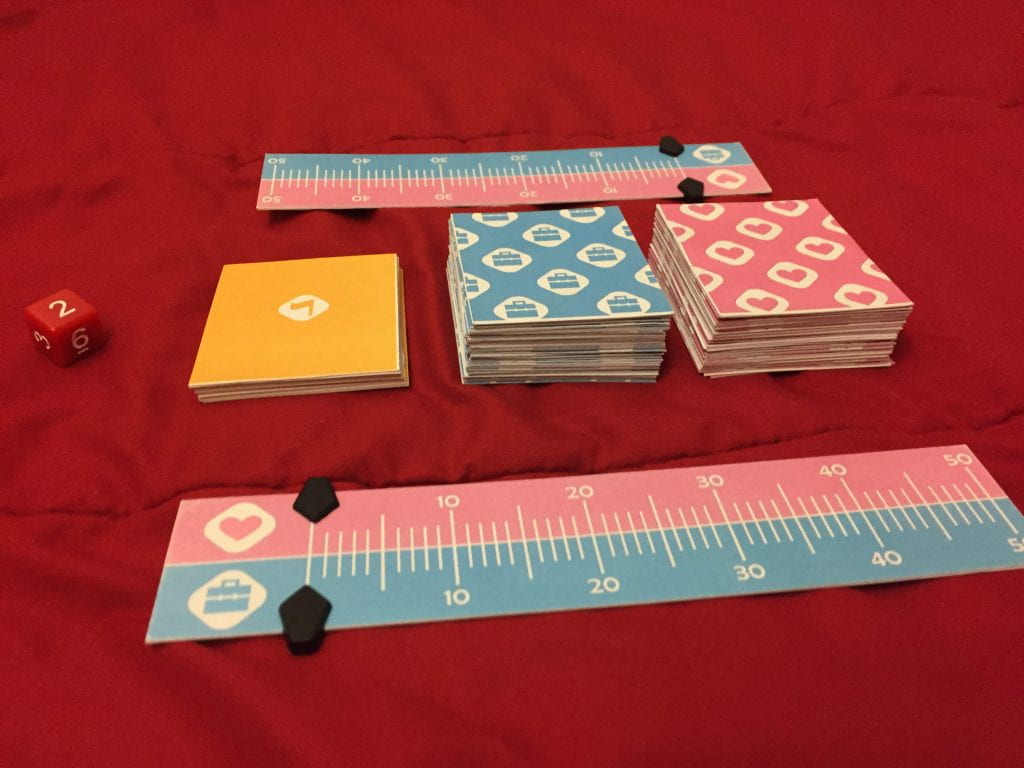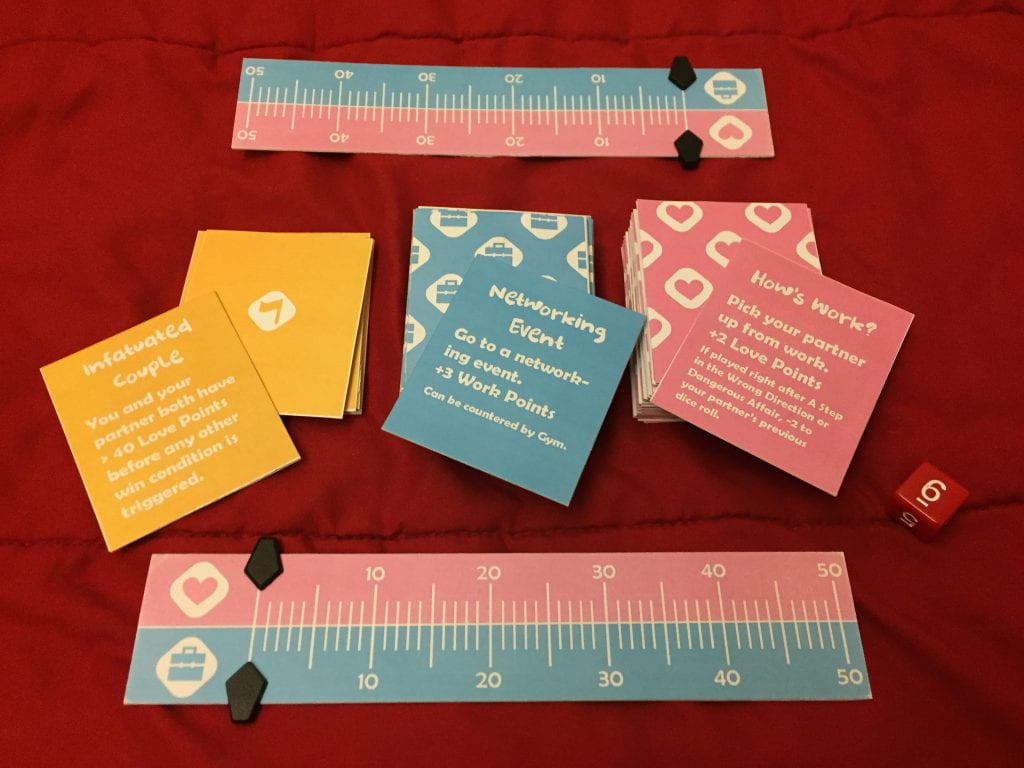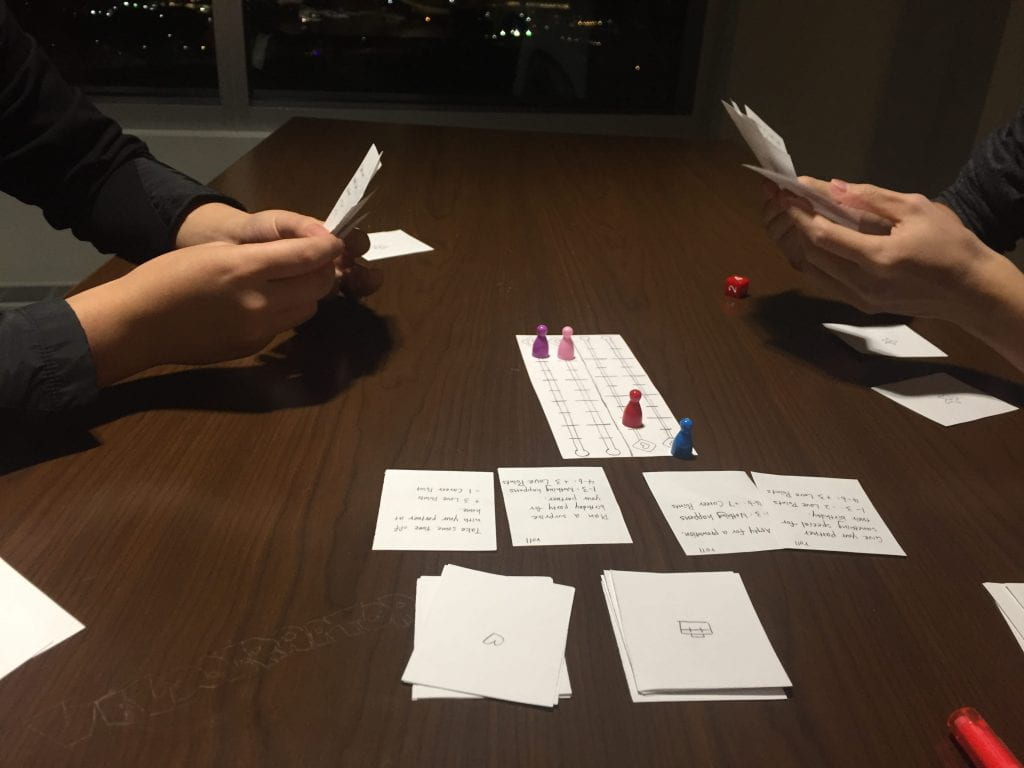Overview:
Relationship is a two-player strategy card game, in which the players can choose to either cooperate or compete with each other. The game primarily focuses on how to manage a relationship while having a career at the same time.
Game pieces:
Two sets of Goal cards
A stack of Love cards
A stack of Work cards
Two Relationship Meters
Markers for the meter (8 in total)
One six-sided dice
How to play:
In Relationship, the players would each draw 3 Work cards and 3 Love cards as their starting hand. As the game progresses, they would keep drawing new cards after each turn in order to always have 3 Work cards and 3 Love cards in hand. Note that a player is only able to influence the other player’s Love meter unless noted otherwise, so the cards they play would always apply to the Love meter of their partner, instead of the Love meter of themselves.
A player can only play one card per round, so they have to choose between their Love cards and Work cards. If a player has played 3 Work/Love cards in a row, they have to play at least one card of the opposite type before putting a fourth card of the same type down. After the first three rounds, if both players’ Love/Work meters are down to zero simultaneously, the relationship would fall apart and both players would lose the game.
Many Work/Love cards also have special abilities noted on them. For example, Oversea Vacation can be countered by Promotion, Birthday Party and Birthday Present add extra Love Points if played together, and keep playing Overtime would drop the other player’s Love Points drastically.
There are five different Goal cards, and each player would pick two of them in secret at the beginning of the game. A player can declare their victory as soon as the win condition on either Goal card is met, and it’s possible for the players to both win if they share the same Goal card.
Inspiration:
A lesson I learned in this class is that games are not necessarily about winning; it’s about the experiences. A game that can’t be won can speak just as much as another game if not more, such as September 12th, Madrid, and The Graveyard. Therefore, I want to make the gameplay process more important than win or lose in my game. Another inspiration was the prisoner’s dilemma, for the player can choose to either cooperate or compete with the other player, but it’s hard to know what the other player’s goal is especially when everyone picks their goals in secret.
I kept thinking about games like That Dragon, Cancer and The End of the World when I was working on this project, even though the genres are completely different. Just like these games, I wanted to make a personal game based on my own values and experiences, even though they might not be able to appeal to everyone. There were times in the past when I felt I was forced to give up on my feelings due to a busy schedule and pressure from family, and this is the first thing that came to my mind when I started thinking about making a game based on my own experiences. The idea behind this game is that one cannot focus on career and love at the same time, and I think it worked well so far. There is one goal in the game that allows the player to win by balancing love and work, but no one has even tried to accomplish it yet in any playtest. Even if a player had picked it in the beginning, they would soon switch to the other goal after seeing their partner focusing on one thing.
Some avant-garde video games such as Passage, Storyteller, and The Graveyard have very unique themes. By selecting a personal and different theme, I wanted to make an avant-garde game that introduces an experimental idea to help engage people in more kinds of ways.
Card design samples:


Documentation:



